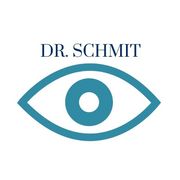
As with any aspect of our bodies, our eyes change over time. Thus, eye care is important at every age, but it should become a priority as we grow older. Discover the impact aging can have on vision below, as well as what you can do to promote a lifetime of quality eye health.
What Happens to Our Eyes as We Age?
After the age of 40, the lens of the eye becomes less flexible and can no longer change shape to focus. This results in a condition called presbyopia, which makes it difficult to see up-close objects, such as restaurant menus. Changes to the lens can also present challenges with glare, making it more difficult to see at night when you age. Alterations in the lens may also lead to a need for increased light while working or reading and changes in color perception. Finally, hormonal changes can also lead to diminished tear production, potentially resulting in dry eye.
What Are Some Common Age-Related Issues?
 In addition to the changes above, some eye problems are also more likely to emerge with age. Cataracts, for example, occur in more than half of Americans by the age of 80. In this condition, the lens of the eye becomes clouded, resulting in fading colors, blurred vision, glares, and poor night vision. Fortunately, eye care specialists can perform surgery to combat this issue.
In addition to the changes above, some eye problems are also more likely to emerge with age. Cataracts, for example, occur in more than half of Americans by the age of 80. In this condition, the lens of the eye becomes clouded, resulting in fading colors, blurred vision, glares, and poor night vision. Fortunately, eye care specialists can perform surgery to combat this issue.
Glaucoma and age-related macular degeneration (AMD) are two other eye conditions related to age. Typically, glaucoma results from increased eye pressure, which can lead to blindness if left unaddressed. Treatments such as surgery, eye drops, and medications are available. With AMD, loss of nerve cells in the central region of the retina lead to vision loss. Although there’s no cure for AMD, nutritional supplements and medications may slow the progression of the disease.
How Can You Protect Your Vision Over Time?
Visiting an eye doctor every year is the best way to promote eye care. At your annual appointment, you’ll receive standard eye tests which can help pinpoint age-related eye conditions in their early stages, when treatment is most likely to be helpful. You’ll also receive comprehensive vision eye exams to determine whether you could benefit from contact lenses or glasses to combat any presbyopia. In addition to visiting the eye doctor, you should always wear UV-blocking eyewear when outdoors, since long-term exposure to UV rays can increase the risk of AMD.
If you’re seeking an optometrist who can help you manage your eye care through the various stages of life, turn to Dr. Michael R. Schmit. Serving White Oak, OH, and the surrounding Cincinnati community, Dr. Schmit has more than 30 years of experience and provides thorough eye exams as well as vision care solutions such as glasses and contact lenses. See the office’s full description of services online or call (513) 741-8811 to schedule an appointment.
About the Business
Have a question? Ask the experts!
Send your question

